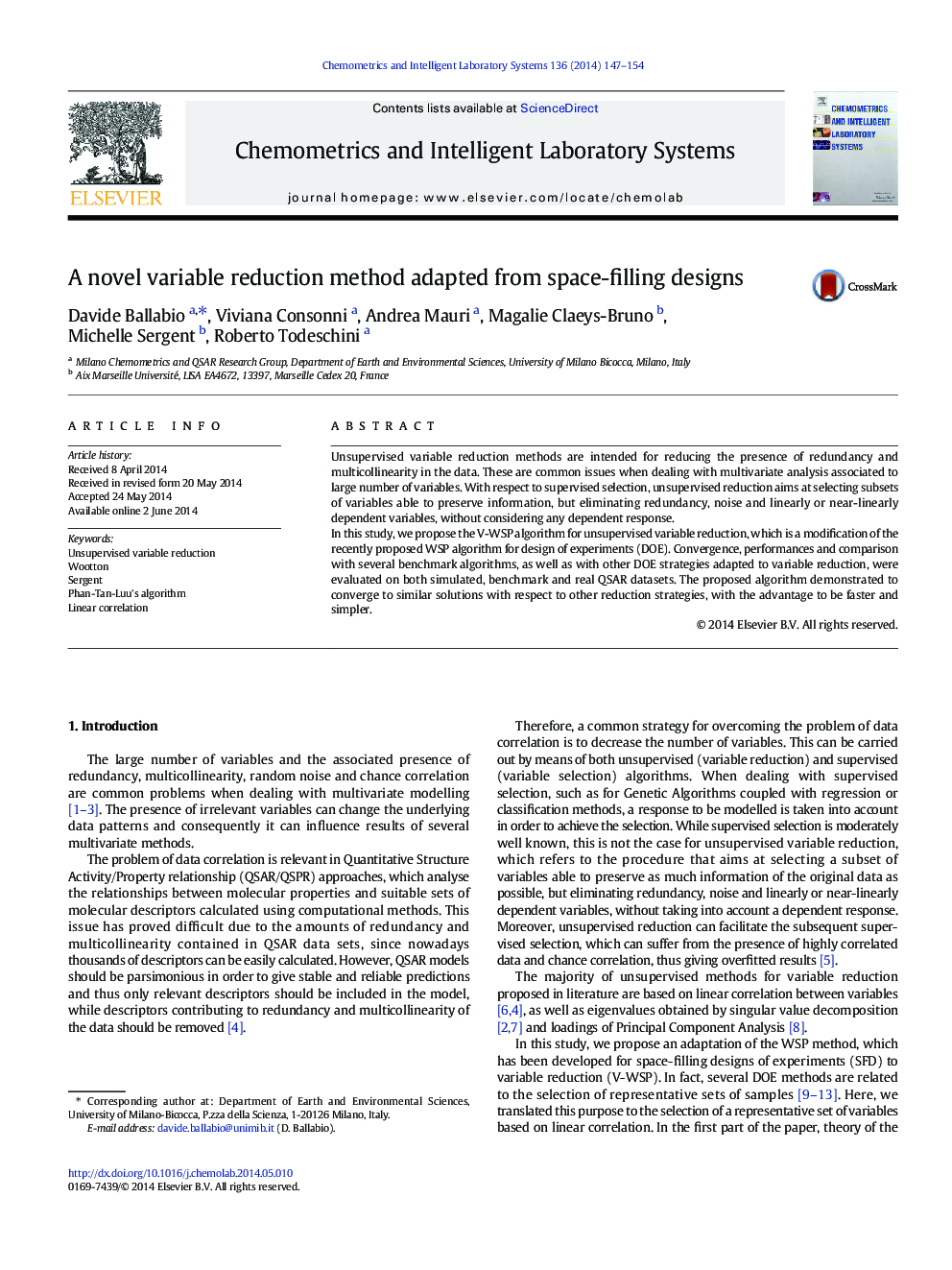| Article ID | Journal | Published Year | Pages | File Type |
|---|---|---|---|---|
| 1179787 | Chemometrics and Intelligent Laboratory Systems | 2014 | 8 Pages |
•V-WSP is a variable reduction method adapted from space-filling designs.•Comparison with benchmark algorithms was conducted.•V-WSP gave similar solutions with respect to other reduction strategies.•The proposed algorithm demonstrated to be significantly faster.
Unsupervised variable reduction methods are intended for reducing the presence of redundancy and multicollinearity in the data. These are common issues when dealing with multivariate analysis associated to large number of variables. With respect to supervised selection, unsupervised reduction aims at selecting subsets of variables able to preserve information, but eliminating redundancy, noise and linearly or near-linearly dependent variables, without considering any dependent response.In this study, we propose the V-WSP algorithm for unsupervised variable reduction, which is a modification of the recently proposed WSP algorithm for design of experiments (DOE). Convergence, performances and comparison with several benchmark algorithms, as well as with other DOE strategies adapted to variable reduction, were evaluated on both simulated, benchmark and real QSAR datasets. The proposed algorithm demonstrated to converge to similar solutions with respect to other reduction strategies, with the advantage to be faster and simpler.
